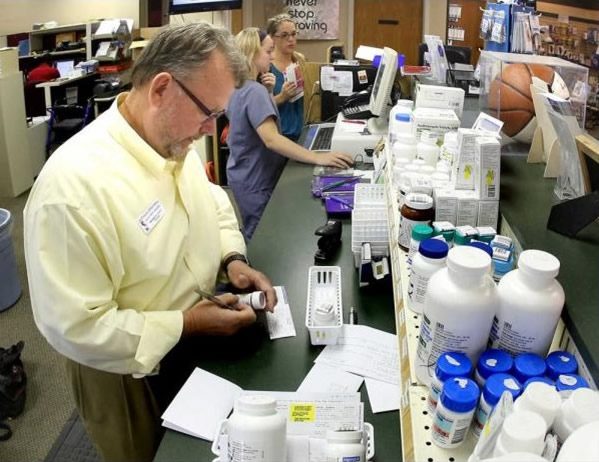During the last decade, workload, a component of the work system, significantly increased in community pharmacies. High workload, which is characterized by the ratio of high demands to low available resources to meet those demands, can result in stress and frustration for the pharmacist, which in turn, can increase the likelihood of medication errors. This is because during times of high workload, pharmacists are at risk of decision errors because they focus on fewer cues, thus missing things they would normally notice.
Our research takes a unique approach to studying workload by departing from the standard measurement of workload (e.g., uni-dimensionally as the number of prescriptions dispensed). Our research focuses on the mental demands of workload and the various dimensions of mental workload associated with specific tasks pharmacists perform such as assessing patient profiles, patient counseling, and handoffs between shifts, as well as understanding the impacts of workload in the community pharmacy setting.
Additionally, our research focuses on factors that contribute to workload. For instance, the ability of community pharmacists to provide and receive effective handoffs was affected by demands that increase mental workload such as the number of interruptions, the need to have one’s attention divided, and the ability to anticipate problems. In another study, pharmacists’ ability to process electronic prescriptions safely and efficiently was impacted by mental demands such as a preoccupation with the potential for failing to notice a problem, and the need to keep track of more than one process at a time.

Our research is significant because it uncovered previously unknown characteristics of pharmacists’ workload, and provides the first evidence that strategies to decrease pharmacist workload must be targeted for specific tasks. For example, the typical solution to increased pharmacist workload is to hire more pharmacists and/or technicians, however, our studies show that simply adding staff may not be the appropriate solution to a multi-dimensional problem. To move this area of research forward, we plan to further develop reliable and valid mental workload measures. This will facilitate the design and testing of targeted interventions to decrease relevant aspects of workload in order to enhance outcomes such as medication safety and pharmacist quality of work life.